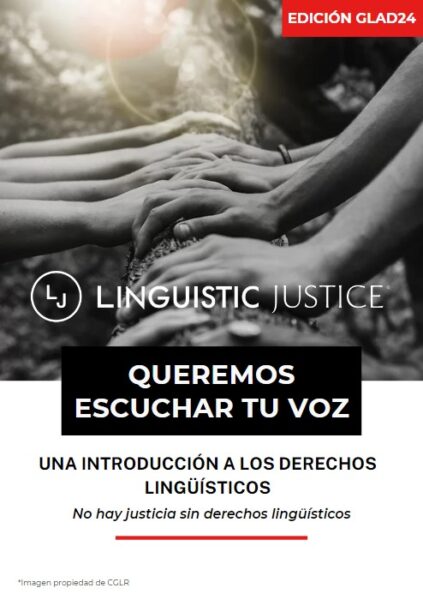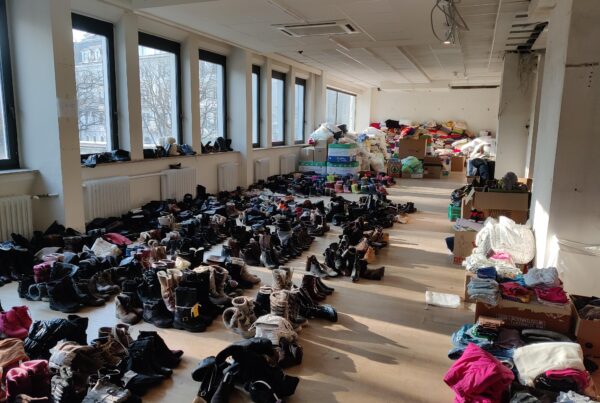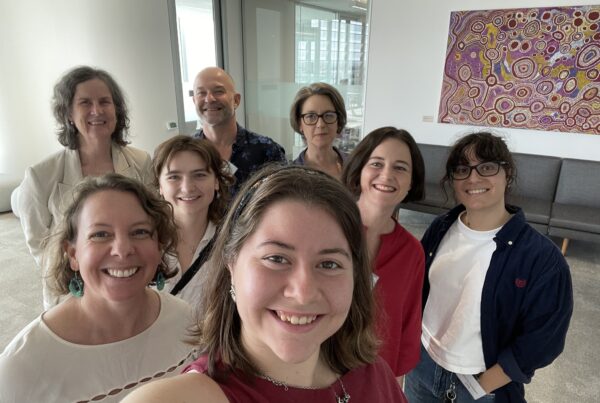Editor’s note: In this conversation with Irene Gotera, Founder of Linguistic Justice®, she discusses her work, her global advocacy for language rights, and her overarching perspective for creating language justice: both from the bottom-up and from within systems.
Can you share about your work and your pro bono global initiative defending language rights?
Irene: Linguistic Justice® is my personal advocacy initiative. It was born during the early pandemic days in 2020 after I quit my job as an interpreter for the New York State Court System. During my time in the system I witnessed first-hand state violence against linguistic minorities who were trying to access justice, particularly how it impacted Indigenous peoples. Founding Linguistic Justice® was my response to that experience; it provided an outlet for my desire to use my skills working with linguistically marginalized communities, instead of enabling state violence against them.
Since then, I have worked hands-on with multiple grassroots organizations in the US looking to implement a language justice approach in their operations. I consult with those organizations to help them remove access barriers, provide meaningful language access, and encourage them to create effective multilingual participatory settings.
On the global front, The Spanish Group Pilot Initiative was my pro bono initiative and my shot at raising awareness of language rights and justice in spaces traditionally dominated by the English language. Rolled out through the Global Coalition for Language Rights (GCLR), it aimed to shine a light on language rights during the Global Language Advocacy Days (GLAD) volunteer initiatives in February 2024, themed “No Justice Without Language Rights”.
The initiative was launched in July 2023 through the Coalition’s social media platforms, and my main aims were two. First, to build a global community by providing participants with quality education and a safe space to share their diverse perspectives. And second, to disseminate our educational content about language rights and justice, in Spanish, from a global platform.
To structure the educational initiative, I developed a 7-month program to facilitate community development and targeted learning. A diverse and talented group of participants spanning seven countries engaged in non-traditional learning methods inspired by my background as a former attorney, my experience as a seasoned linguist, as well as my integration of restorative practice processes for developing social capital.
The overall success of the initiative stands as a testament to the need for serious investment in the advancement of language justice, including through fully funded multilingual community education programs like this one.
Can you share more about the handbook you developed as part of your pro bono initiative?
Irene: To conclude the pilot initiative, I authored and gathered the introductory language rights handbook titled ‘Queremos escuchar tu voz’ (or ‘We want to hear your voice’).
Throughout this resource, the term ‘voice’ is used in a figurative sense to emphasize the significance of individual language preference in shaping our identity and asserting our self-determination. I wanted to underscore that our ‘voice’ represents the power of communicative autonomy of each person: a fundamental aspect of our human dignity.
In a nutshell, this handbook is a call to action to catalyze support for language justice. It aims to tackle the prevalent collective unawareness surrounding language rights, striving to expand consciousness regarding these rights and, consequently, expand our collective capacity to create language justice. It is meant to provide vocabulary for anyone who wants to understand and articulate how people are disadvantaged as users of non-dominant languages.
What are you hoping to achieve with the first edition of this handbook?
Irene: Firstly, I am hoping that the pilot initiative, along with its resulting handbook, inspires future initiatives to foster community development through multilingual education about language rights.
We must acknowledge that people cannot advocate for rights they don’t know they have in the first place. Our language is intertwined with every facet of our lives, and withholding language rights from people profoundly impacts their lives, hindering their access to social structures: information, opportunities, critical services, education and justice. So, supporting communities in understanding their language rights is crucial to nurturing their self-determination and fostering their own advocacy efforts for those rights.
Secondly, I hope it facilitates a shift in perspective, recognizing linguistically marginalized communities as rights-holders.
When linguistically oppressed communities lack the capacity to articulate their experiences, those in power may not fully understand how pervasive language rights violations are. We have unaware people in positions of authority within our systems.
The result? Without understanding language rights and the impact language oppression has on our communities, efforts remain insufficient. Holding systems accountable is crucial, but supporting them with education on this topic is equally important to foster systemic change.
Those in a position of authority within systems—public and private institutions, policymakers, and the language access industry as a whole—need to better understand language rights, and the impact language oppression has in our communities, to be able to shift their perspective: from linguistic discrimination, half-hearted compliance and indifference, to awareness, inclusion and repair.
We must care for both of these needs seriously: from the bottom-up with our communities, and from within our social structures and its systems.
Can you share more about the content of this handbook?
Irene: This introductory resource provides a thorough examination of language rights on a global scale, encompassing their legal foundations in international humanitarian law, as well as the legal framework for language rights in the United States, including relevant jurisprudence.
Among its features are discussions of language rights theory and practice, guidance on filing national origin discrimination complaints before the US Federal government, and community insights aimed at advancing language justice for all people.

Irene Gotera, Linguistic Justice®
By amplifying the voices of the participating community in the pilot initiative, I also share our findings underscoring several key imperatives to create language justice:
- Promoting self-awareness and recognition of one’s own linguistic privileges.
- Fostering collective understanding of language rights.
- Making the resources like this handbook available and accessible to staff members of organizations serving linguistically diverse populations worldwide.
- Engaging in global dialogues on language oppression to cultivate the solidarity necessary to confront it.
- Proactively defending our language rights to enhance awareness of them.
- Urging states worldwide to enact legislation guaranteeing respect for language rights, recognizing that with language rights come corresponding obligations for compliance.
The handbook closes with my perspective on the connection between language rights and justice: to create language justice for all people, we all need to develop and apply a language rights-conscious lens. I’m hopeful that this resource could be a significant catalyst in fostering exactly that. Download it here.
There is no justice without language rights.







 This work is licensed under a
This work is licensed under a
This initiative is superb. The handbook is an impressive achievement that builds on grassroots needs and experience, and well-informed, sensitive professional competence. I wish that my wife, Tove Skutnabb-Kangas and I, as editors of the first ever academic Handbook of Linguistic Human Rights, published by Wiley-Blackwell in November 2022, had heard about it before our book went to press. It would have been splendid to have an entire chapter on Linguistic Justice.com, rather than a short presentation in the chapter entitled Existential Evidence, which has brief coverage of both denial and achievement of linguistic rights (see https://www.wiley.com/en-gb/The+Handbook+of+Linguistic+Human+Rights-p-9781119753902).
Dear professor Phillipson, I am moved by your words of recognition of my work. The legacy you and your wife, Tove Skutnabb-Kangas, have left behind has been a constant source of inspiration for me over the years, informing my practice. I look forward to the opportunity for us to collaborate and advance language justice together.